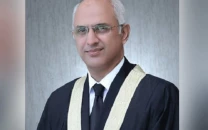Foreign loans are not the answer
A textbook definition of a rentier state is one that is rich in resources and is not accountable to the citizen.

Foreign loans are not the answer
As I am not an economist or a financial analyst, I cannot tell you what the future of Pakistan’s economy will be. Nor do I know if the current economic policies will finally save Pakistan. However, I do know that whatever loans we receive come with strings and certain dictatorial (and unfavourable) policies that must be followed before we can benefit from loans. These policies often take a toll on a country’s growth. Moreover, this affects the ability of the government to pursue policies that lead to the betterment of that state. The most pressing issue is that these loans must be paid back with interest.
When the annual budget is released, a major portion of it is earmarked to pay off past loans. Won’t taking all these loans just swamp Pakistan in continuous debt. Is it really worth taking these loans? Unfortunately, yes.
In a country receiving tax just from eight per cent of its population, the government really has no choice. Yet, here is the bright side, these loans can be invested wisely, just like the OSAP University student loan I was able to take as a student in Canada. The loan allowed me to attain the same education and opportunities as anyone else. Thus, one’s financial background did not limit one’s authority. With sufficient hard work one could easily attain the career by which these loans could be paid off, and far more would be made. As it is, education helps build a country in a way loans never can.
Similarly, Pakistan can wisely invest in these funds, such as utilising them to overcome the energy crisis and promoting business opportunities in order to overcome its turbulent financial past, so as to generate more income and break free of the cycle of loans.
Published in The Express Tribune, May 14th, 2014.



















COMMENTS
Comments are moderated and generally will be posted if they are on-topic and not abusive.
For more information, please see our Comments FAQ